- Home
- Robin Cook
Foreign Body sam-8
Foreign Body sam-8 Read online
Foreign Body
( Stapleton and Montgomery - 8 )
Robin Cook
A series of unexplained deaths in foreign hospitals sends an idealistic UCLA medical student on a desperate search for answers, in this chilling tale from the master of the medical thriller.
Jennifer Hernandez is a fourth-year medical student at UCLA, just completing an elective in general surgery, whose world is shattered during a break in an otherwise ordinary day. While relaxing in the surgical lounge of L.A.’s Cedars-Sinai Medical Center, she half-listens to a piece on medical tourism, where first-world citizens travel to third-world countries for surgery. But when she hears her beloved grandmother’s name mentioned, her own heart nearly stops: the CNN reporter says Maria Suarez-Hernandez had died, a day after undergoing a hip replacement in New Delhi’s Queen Victoria Hospital.
Maria had raised Jennifer and her brothers from infancy, and their bond was unshakable. Still, the news that Maria had traveled to India was a shock to Jennifer, until she realized that it was the only viable option for the hardworking yet uninsured woman. Devastated, and desperate for answers, Jennifer takes emergency leave from school and heads to India, where relations with local officials go from sympathetic to sour as she presses for more information. With the discovery of other unexplained deaths followed by hasty cremations, Jennifer reaches out to her mentor, New York City medical examiner Dr. Laurie Montgomery, who has her own deep connection to Maria.
Laurie, along with her husband, Dr. Jack Stapleton, rushes to the younger woman’s side, discovering a sophisticated medical facility with little margin for error. As the death count grows, so do the questions, leading Laurie and Jennifer to unveil a sinister, multilayered conspiracy of global proportions.
Acknowledgments
I would like to acknowledge several Indian doctors who were exceptionally hospitable to me on my visit to India, particularly Dr. Gagan Gautam, who took an entire day out of his busy schedule to show me both private and public Indian hospitals. There was also Dr. Ajit Saxena, who not only showed me his private hospital but also invited me into his home to meet his family and enjoy a wonderful, home-cooked Indian dinner. And finally there was Dr. Sudhaku Krishnamurth, who introduced me to the two previously named individuals.
At the same time as acknowledging these physicians I would like to absolve them of any responsibility for the story line, descriptions, or slight exaggerations in Foreign Body, for which I take full responsibility. For example, upon reading the manuscript, Dr. Gautam commented, “I haven’t seen people riding on the roof of a bus in Delhi. Hanging from them, yes . . . but not on the roof.” After some thought I realized he was correct. When I saw the phenomenon, it was indeed outside the city limits.
Finally, I would like to acknowledge the country of India itself. During my visit I found it to be an overwhelmingly fascinating mixture of contrasts: rich yet poor, serenely beautiful but insidious, modern yet medieval. It is a country living in three centuries all at once, with a fascinating history I knew little about, and populated by creative, intelligent, beautiful, and hospitable people. In short, it is a country I can’t wait to revisit.
This book is dedicated to Samarth Gautam,
in hopes that his generation
and the previous will live in respectful harmony.
Have a great life, little guy!
If one thinks of oneself as free, one is free,
and if one thinks of oneself as bound, one is bound.
Here this saying is true, “Thinking makes it so.”
—Ashtavakra Gita, 1:11, translated by John Richards
Prologue
OCTOBER 15, 2007
MONDAY, 7:00 P.M.
DELHI, INDIA
Only those long-term residents of Delhi who were extraordinarily sensitive to the vicissitudes of the city’s traffic patterns could tell that rush hour had peaked and was now on the downward slope. The cacophony of horns, sirens, and screeches seemed undiminished to the tortured, untrained ear. The crush appeared unabated. There were gaudily painted trucks; buses with as many riders clinging precariously to the outside and on the roof as were inside; autos, ranging from hulking Mercedes to diminutive Marutis; throngs of black-and-yellow taxis; auto rickshaws; various motorcycles and scooters, many carrying entire families; and swarms of black, aged bicycles. Thousands of pedestrians wove in and out of the stop-and-go traffic, while hordes of dirty children dressed in rags thrust soiled hands into open windows in search of a few coins. Cows, dogs, and packs of wild monkeys wandered through the streets. Over all hung a smothering blanket of dust, smog, and general haze.
For Basant Chandra, it was a typically frustrating evening commute in the city that he had lived in for his entire forty-seven years. With a population of more than fourteen million, traffic had to be tolerated, and Basant, like everyone else, had learned to cope. On this particular night he was even more tolerant than usual since he was relaxed and content from having stopped for a visit with his favorite call girl, Kaumudi.
In general, Basant was a lazy, angry, and violent man who felt cheated in this life. Growing up in an upper-caste Kshatriya family, he felt his parents had married him down with a Vaishya woman, despite his father’s obtaining a management position at the in-laws’ pharmaceutical firm as part of the union, while he was afforded a particularly well-paying sales manager position in place of his previous job selling Tata-brand trucks. The final blow to Basant’s self-esteem came with his children, five girls, aged twenty-two, sixteen, twelve, nine, and six. There had been one boy, but his wife had miscarried at five months, for which Basant openly blamed her. In his mind, she’d done it on purpose by overworking as a harried medical doctor, practicing internal medicine at a public hospital. He could remember the day as if it were yesterday. He could have killed her.
With such thoughts in mind, Basant pounded his steering wheel in frustration as he glided into the reserved parking slot in front of his parents’ house, where he and his family lived. It was a soiled three-story concrete structure that had been painted white at some indeterminate time in the past. The roof was flat and the window frames metal. On the first floor was a small office where his wife, Meeta, occasionally saw her few private patients. The rest of the first floor housed his aging parents. Basant and his family occupied the second floor, and his younger brother, Tapasbrati, and his family were on the third.
As Basant was critically eyeing his house, which was hardly the style that he expected to be living in at this stage of his life, he became aware of a car pulling up behind him, blocking him in. Gazing in the rearview mirror, he had to squint against the car’s headlights. All he could make out through the hazy glare was a Mercedes emblem.
“What the hell?” Basant spat. No one was supposed to park behind him.
He opened his door and climbed from the car with full intention of walking back and giving the Mercedes’s driver a piece of his mind. But he didn’t have to. The driver and his two passengers had already alighted and were approaching ominously.
“Basant Chandra?” the passenger in the lead questioned. He wasn’t a big man, but he conveyed an indisputable aura of malevolent authority with his dark complexion, spiked hair, a bad-boy black leather motorcycle jacket over a tight white T-shirt, exposing a powerful, athletic body. Almost as intimidating was the driver. He was huge.
Basant took a reflexive step back as alarm bells began to sound inside his head. This was no chance meeting. “This is private property,” Basant said, trying to sound confident, which he clearly wasn’t.
“That’s not the question,” the man in the motorcycle jacket said. “The question is: Are you the piece of donkey crap called Basant Chandra?”
Basant swallowed with some difficulty.
His internal alarms were now clanging with the utmost urgency. Maybe he shouldn’t have hit the hooker quite so hard. He looked from the Sikh driver to the second passenger, who’d proceeded to pull a gun from his jacket pocket. “I’m Basant Chandra,” Basant managed. His voice squeaked, almost unrecognizable to himself. “What’s the problem?”
“You’re the problem,” the man in the motorcycle jacket said. He pointed over his shoulder. “Get in the car. We’ve been hired to talk some sense into you. We’re going for a little ride.”
“I . . . I . . . I can’t go anyplace. My family is waiting for me.”
“Oh, sure!” the apparent leader of the group said with a short, cynical laugh. “That’s exactly what we have to talk about. Get in the car before Subrata here loses control and shoots you, which I know he’d prefer to do.”
Basant was now visibly trembling. He desperately looked from one threatening face to the other, then down to the gun in Subrata’s hand.
“Should I shoot him, Sachin?” Subrata asked, raising his silenced automatic pistol.
“See what I mean?” Sachin questioned, spreading his hands palms up. “Are you going to get into the car or what?”
Wanting to flee off into the darkness but terrified to do so lest he be shot in the back, Basant forced himself forward, wondering if he should run out into the middle of the congested street. Unable to make up his near-paralyzed mind, he found himself at the black Mercedes, where Subrata opened the passenger-side rear door with his free hand. Subrata forced Basant’s head down and his torso into the car before walking around and climbing in on the other side. He was still holding on to his gun and made certain Basant saw that he was.
Without another word, Sachin and the driver climbed into the front seat. The car pulled out into the street as fast as the congested traffic would allow.
“To the dump?” the driver asked.
“To the dump, Suresh,” Sachin agreed.
Acutely aware of the firearm, Basant at first was too terrified to say anything at all, but after ten minutes he was more afraid of not saying anything. His voice wavered at first but then gained some semblance of strength. “What is this all about?” he questioned. “Where are you taking me and why?”
“We’re taking you to the dump,” Sachin said, turning around. “It’s where we all agreed you belonged.”
“I don’t understand,” Basant blurted. “I don’t know you people.”
“That’s going to change, starting tonight.”
Basant felt a modicum of hope. Not that he was happy about the prospect, but Sachin was suggesting a long-term relationship, meaning they weren’t going to shoot him. As a drug-sales manager, it crossed his mind that these people might be interested in some kind of drugs. The problem was that Basant had access only to drugs his in-laws’ firm made, which were mostly antibiotics, and this kind of shakedown for antibiotics seemed extreme.
“Is there some way I can help you people?” Basant asked hopefully.
“Oh, yeah! For sure!” Sachin responded without elaborating.
They drove in silence for a while. Finally, Basant spoke up. “If you would just tell me, I’ll be happy to help in any way I can.”
Sachin swung around and glared at Basant for a beat but didn’t speak. Any slight diminution of Basant’s encompassing panic evaporated. His trembling returned with a vengeance. His intuition assured him this was not going to end well. When the driver braked to a crawl behind one bullock cart passing another, Basant considered opening the car door, leaping out, and sprinting off into the dark, dusty haze. A glance into Subrata’s lap at the nestled gun resulted in a quick response.
“Don’t even think about it,” Subrata said, as if reading Basant’s mind.
They turned off the main road after another fifteen minutes and headed into the enormous landfill.Through the windows they could see small fires with flames licking up through the mounds of trash, sending spirals of smoke up into the sky. Children could be seen scampering over the debris, looking for food or anything of even questionable value. Rats the size of large rabbits were caught in the headlights as they scurried across the roadway.
Pulling up between several story-high piles of garbage, the driver made a three-point turn to direct the car back toward the way they’d come. He left the motor running. All three of the toughs climbed out. The driver opened the door for Basant. When Basant didn’t respond, the driver reached in and, grabbing a handful of his kurta, dragged him stumbling from the car. Basant couldn’t help choking from the smoke and stench. Without letting him go, the driver continued to drag him into the illumination provided by the headlights, where he released him roughly. Basant did all he could do to stay on his feet.
Sachin, who was pulling a heavy glove on his right hand, walked up to Basant and, before Basant could react, punched him viciously in the face, sending him stumbling backward, losing his balance, and falling into the fetid garbage. With his ears ringing and blood dripping from his nose, he rolled over onto his stomach and tried to get up, but his hands sank into the loose trash. At the same time he felt broken glass cut into the flesh of his left arm. He was yanked by the ankle from the soft garbage out onto the firmly packed truck track. He was then forcibly kicked in the stomach, causing him to lose his wind in the process.
It took Basant several minutes to catch his breath. When he had, Sachin reached down and grabbed the front of his kurta and yanked him to a sitting position. Basant raised his arms in an attempt to try to shield his face from another blow, but the blow didn’t materialize. Hesitantly, he opened his eyes, looking up into the cruel face of his attacker.
“Now that I have your attention,” Sachin snarled, “I want to tell you a few things. We know about you and what kind of piece of shit you are. We know what you’ve been doing to your oldest daughter, Veena, since she was six. We know you’ve been keeping her in line by threatening to do the same to her four younger sisters. And we know what you’ve been doing to her mother.”
“I’ve never—” Basant began but was interrupted by a vicious slap to the face.
“Don’t even try to deny it, you bastard, or I’ll beat you to a pulp and leave you here for the rats and the wild dogs to eat.”
Sachin glared down at the cowering Basant before continuing. “This isn’t some kind of trial. We know what I’m saying is the truth, you slimy bastard. And I’m going to tell you something. This is a warning! If you ever touch one of your daughters inappropriately or your wife in anger, we will kill you. It’s that simple. We’ve been hired to do it, and knowing what I do about you, I’d just as soon do it and get it over with. So I actually hope you give me the excuse. But that’s the message. Any questions? I want to be certain you understand.”
Basant nodded. A glimmer of hope appeared in his terrified mind. This current nightmare was only a warning.
Sachin unexpectedly slapped Basant once more, sending the man onto his back, his ears ringing and his nose rebleeding.
Without another word, Sachin took off his leather glove, glared down at Basant for a beat, waved for his companions to follow, and returned to the black Mercedes.
Sitting up with a sense of utter relief when he realized he was being left, Basant proceeded to get to his feet. A moment later he had to leap back into the loose trash and out of the way as the large sedan surged toward him, missing him by inches. Basant stared after the goons’ car while the red taillights receded into the smoke and haze. Only then did he become truly aware of the darkness and stench surrounding him, and the facts that his nose and arm were bleeding, that he’d gathered a small audience of silent, staring landfill urchins, and that the rats were inching closer. With sudden new fear and revulsion, Basant struggled back onto his feet, extricated himself from the soft trash and regained the firmness of the track, all the while grimacing from the pain in his side from the kick he’d suffered. Although it was very difficult to see, because of the moonless night, he hurried forward, hands outstretched like a blind man. He had a l
ong way to walk before reaching a road that would have transportation. It wasn’t pleasant and was definitely scary, but at least he was alive.
SAME TIME IN A SECTION OF NEW DELHI
On a busy business street, wedged between typical, three-storied, reinforced-concrete commercial buildings whose façades were almost completely covered by signs in both Hindi and English, stood the starkly modern five-story Queen Victoria Hospital. In sharp contrast to its neighbors, it was constructed of amber-mirrored glass and green marble. Named after the beloved nineteenth-century British monarch to appeal to the modern medical tourist as well as the rapidly expanding Indian upper middle class, the hospital was a beacon of modernity thrust into the center of India’s timelessness. Also in contrast to its neighboring plethora of small businesses, which were, for the most part, still open, busy, and casting harsh blue-white fluorescent light into the street, the hospital looked bedded down for the night, with little of its soft, interior illumination penetrating the tinted glass.
Except for two tall, traditionally costumed Sikh doormen standing at either side of the entrance, the hospital could have been closed. Inside the day was clearly winding down. As a tertiary hospital with no real emergency department, the Queen Victoria handled only scheduled elective surgery, not emergencies. The soiled dinner dishes had long since been picked up, washed, and hidden away in their cupboards, and most of the visitors were gone. Nurses were handing out evening medications, dealing with drains and dressings from the day’s surgeries, or sitting within bright cones of light at nurses’ stations to finish up their computerized charting duties.
After a hectic day involving thirty-seven major surgeries, it was a relaxed and quiet time for everyone, including the one hundred and seventeen patients: everyone, that is, except Veena Chandra. While her father was trudging out of the rank, loathsome landfill, Veena was struggling in the half-light of an anesthesia room in the empty operating-room suite, where the only light was filtering in from the dimmed central corridor. Veena was attempting with trembling fingers to stick the needle of a 10cc syringe into the rubber top of a vial of succinylcholine, a rapidly paralyzing drug related to the curare of Amazonian poison dart fame. Normally, she could fill such a syringe with ease. Veena was a nurse, having graduated from the famous public hospital the All India Institute of Health Sciences almost three months ago. Following graduation she’d been hired by an American firm called Nurses International, which had, in turn, hired her out to the Queen Victoria Hospital after providing her with some specialized training.

 Shock
Shock Mutation
Mutation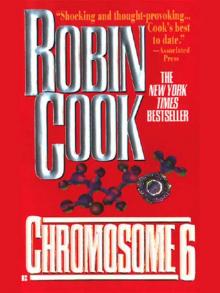 Chromosome 6
Chromosome 6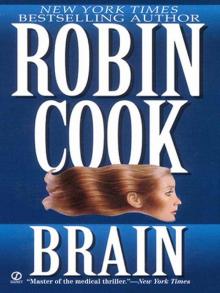 Brain
Brain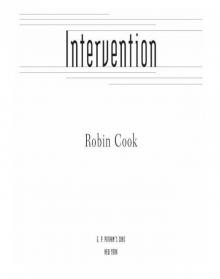 Intervention
Intervention Invasion
Invasion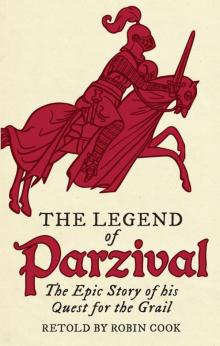 The Legend of Parzival: The Epic Story of His Quest for the Grail
The Legend of Parzival: The Epic Story of His Quest for the Grail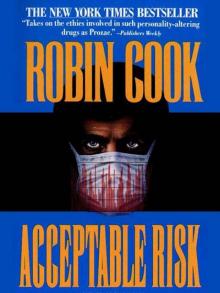 Acceptable Risk
Acceptable Risk Cell
Cell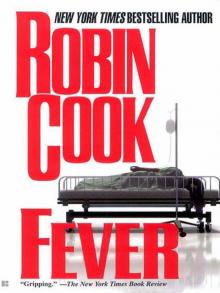 Fever
Fever Death Benefit
Death Benefit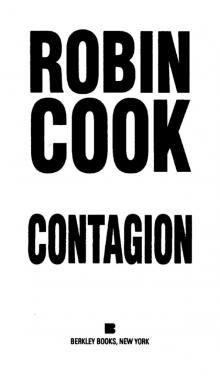 Contagion
Contagion Mindbend
Mindbend Coma
Coma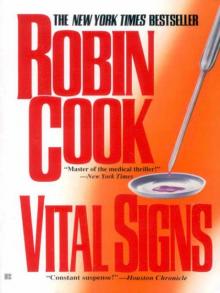 Vital Signs
Vital Signs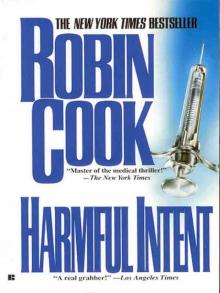 Harmful Intent
Harmful Intent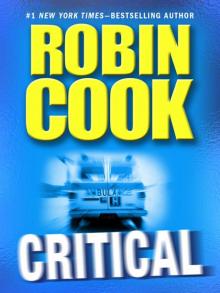 Critical
Critical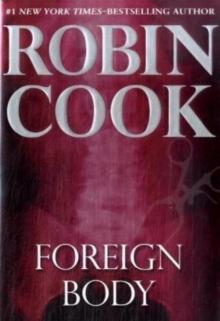 Foreign Body
Foreign Body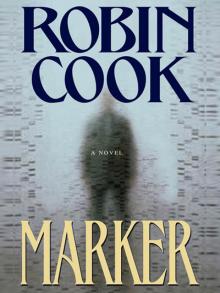 Marker
Marker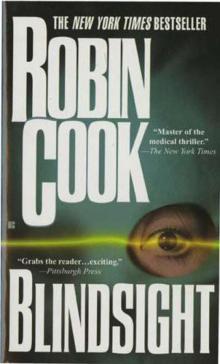 Blindsight
Blindsight Terminal
Terminal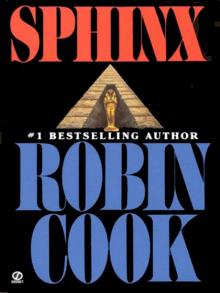 Sphinx
Sphinx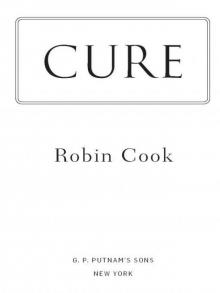 Fatal Cure
Fatal Cure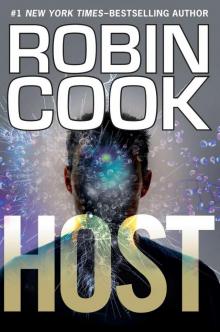 Host
Host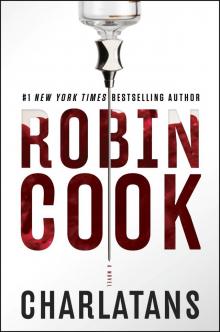 Charlatans
Charlatans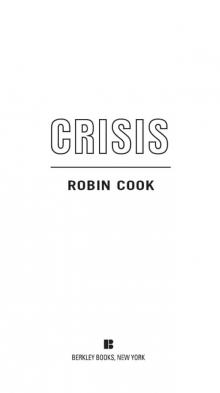 Crisis
Crisis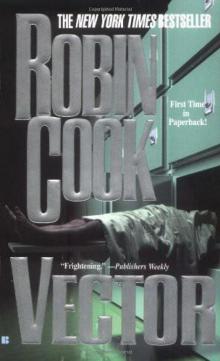 Vector
Vector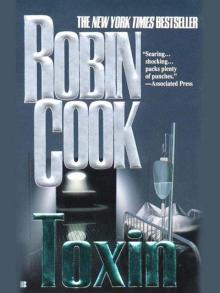 Toxin
Toxin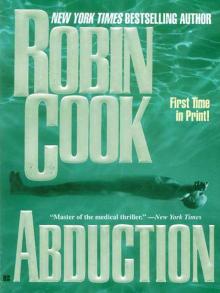 Abduction
Abduction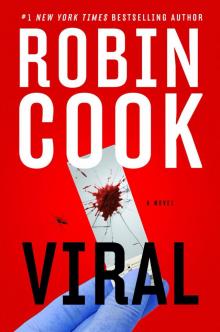 Viral
Viral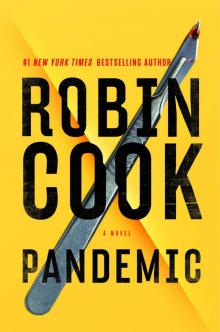 Pandemic
Pandemic Outbreak
Outbreak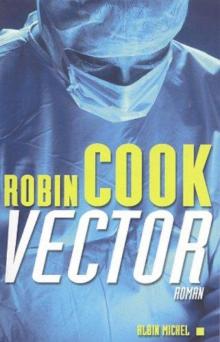 Vector js&lm-4
Vector js&lm-4 Godplayer
Godplayer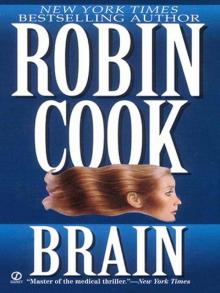 A Brain
A Brain Year of the Intern
Year of the Intern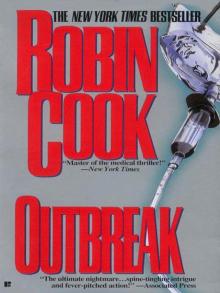 Outbreak dmb-1
Outbreak dmb-1 Cure
Cure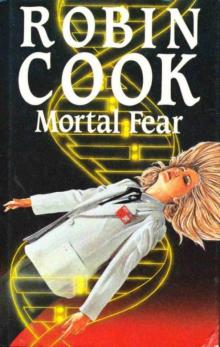 Mortal Fear
Mortal Fear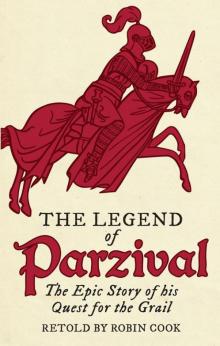 The Legend of Parzival
The Legend of Parzival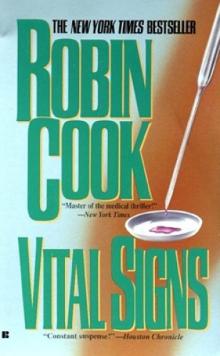 Vital Signs dmb-2
Vital Signs dmb-2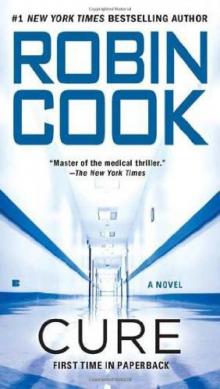 Cure (2010) sam-10
Cure (2010) sam-10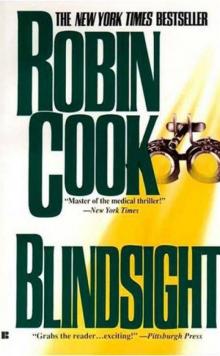 Blindsight sam-1
Blindsight sam-1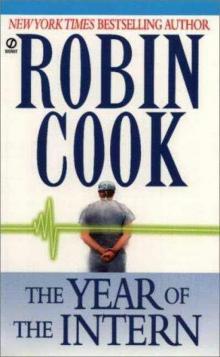 The Year of the Intern
The Year of the Intern Intervention sam-9
Intervention sam-9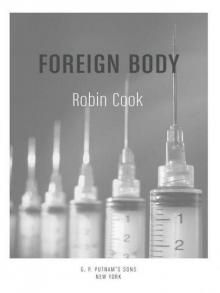 Foreign Body sam-8
Foreign Body sam-8